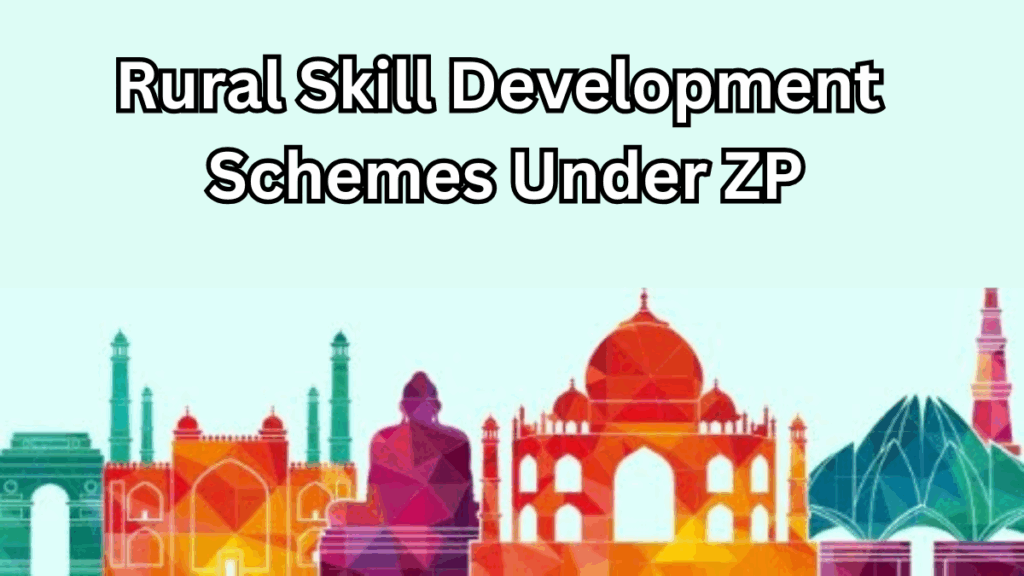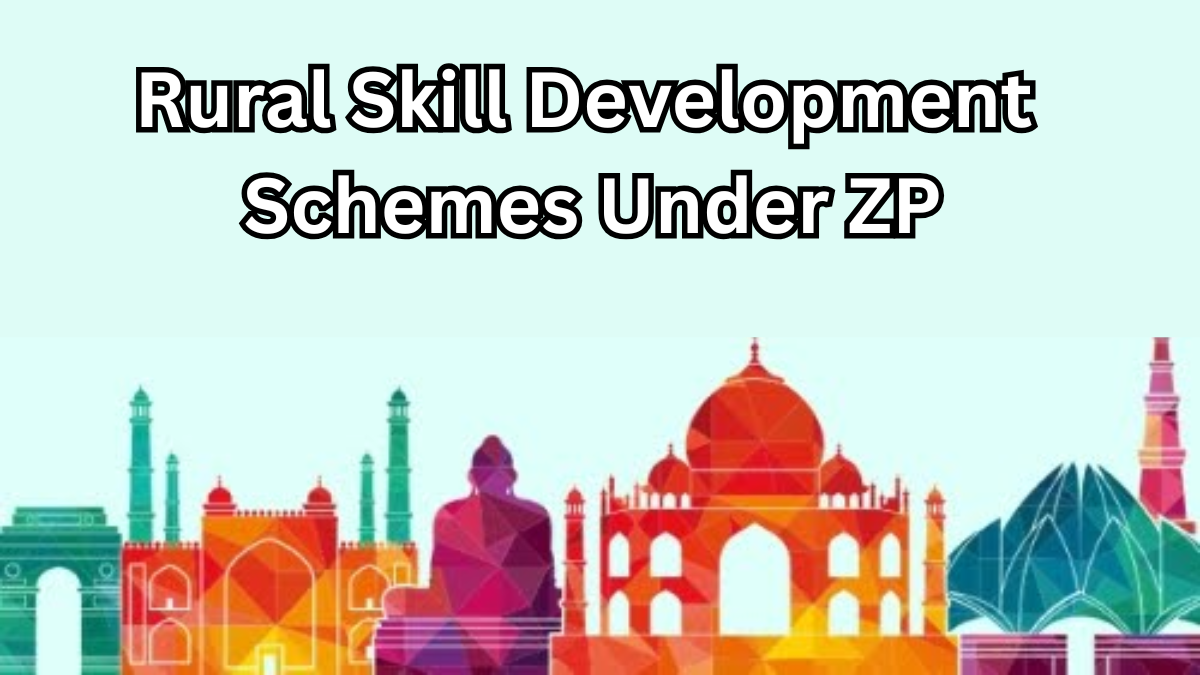Skill development is one of the strongest pillars for uplifting rural communities in India. The Zilla Parishad (ZP) has been actively introducing skill development villages and rural training programs to provide employment-oriented education and training to youth, women, and farmers. These schemes not only help in reducing unemployment but also create opportunities for entrepreneurship and sustainable livelihoods in villages.

Why Rural Skill Development Matters
India’s villages are rich in human potential, but many individuals lack access to structured training. The gap between traditional livelihood practices and modern job requirements needs to be bridged.
Key reasons why skill development in villages is important:
-
Creates self-reliant communities
-
Reduces rural-to-urban migration
-
Enhances local entrepreneurship opportunities
-
Promotes women’s empowerment and inclusive growth
-
Boosts income levels and improves quality of life
Major Skill Development Schemes Under ZP (2025)
The Zilla Parishad has rolled out multiple programs to empower rural youth. Below is an overview of the initiatives.
| Scheme Name | Focus Area | Target Beneficiaries | Training Approach |
|---|---|---|---|
| Rural Skill Development Villages | Agriculture, Dairy, Food Processing | Farmers, Youth | Hands-on training at village centers |
| Vocational Training Programs | Tailoring, Handicrafts, Carpentry | Rural Women & Youth | Classroom & practical workshops |
| Digital Literacy Camps | Computer basics, Online services | School dropouts, Youth | Short-term certification programs |
| Entrepreneurship Development | Business skills, Microfinance awareness | Self-help groups, Local entrepreneurs | Workshops & mentorship |
| Green Skill Programs | Solar tech, Organic farming | Farmers, Rural youth | Demonstration-based training |
How These Schemes Transform Villages
The introduction of skill development villages has turned rural areas into learning hubs. Local training centers under ZP focus on practical knowledge and industry linkages.
Key transformations include:
-
Employment generation through local jobs and entrepreneurship
-
Women empowerment via specialized rural training programs
-
Digital inclusion with access to government schemes, online banking, and e-commerce
-
Sustainable agriculture practices for higher productivity
-
Green economy opportunities such as solar energy, eco-tourism, and waste management
Future Outlook for 2025
With ZP schemes becoming more inclusive, the government aims to:
-
Cover all districts with skill development villages
-
Train at least one member per household in employable skills
-
Integrate digital and green technologies into rural livelihoods
-
Collaborate with industries for job placements and apprenticeships
FAQs on Rural Skill Development Schemes 2025
Q1. What is the main objective of ZP’s rural skill development programs?
The main aim is to provide practical training to rural youth, women, and farmers so they can gain employment or start small businesses locally.
Q2. Who can join these rural training programs?
Any village resident, especially unemployed youth, women, school dropouts, and farmers, can enroll in these schemes.
Q3. Are these skill development villages free of cost?
Most of the training sessions are funded by the government, making them free or very affordable for participants.
Q4. What types of skills are taught in these programs?
From agriculture, food processing, tailoring, carpentry, and handicrafts to digital literacy, solar technology, and entrepreneurship, a wide range of skills are covered.
Click here to learn more
